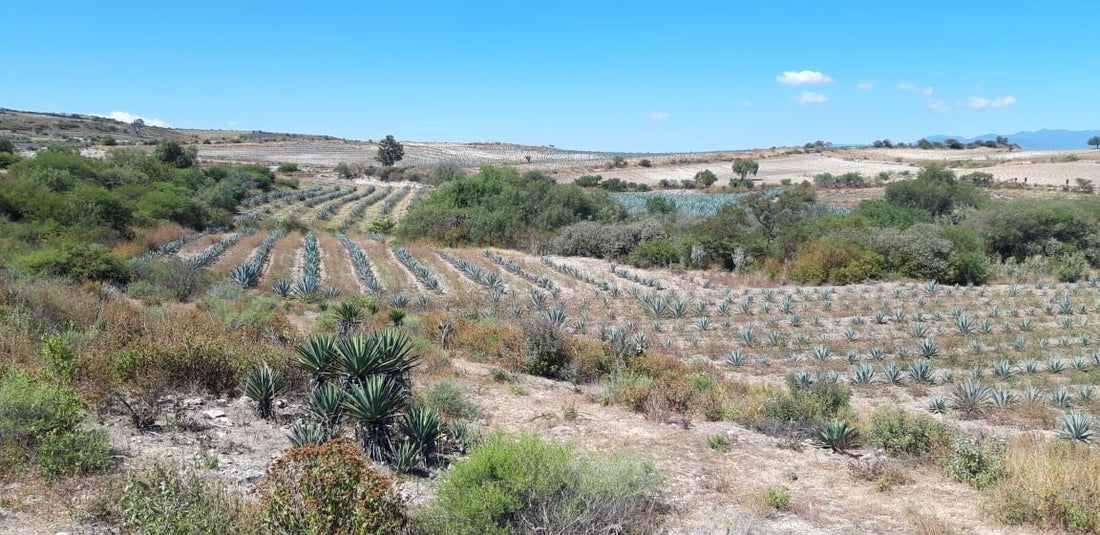Tequila and mezcal are two spirits from Mexico that share agave as a starting point, but their differences are revealed in the varieties of this plant and the specific growing regions.
Types of agave
Tequila is mostly produced from the blue agave, technically known as Agave tequilana Weber. This variety is the essential base for different types of tequila, from white and young to reposado and añejo. The choice of this single plant gives tequila a distinctive flavor profile, more uniform than the range of flavors of mezcal.
In contrast, mezcal is more open in its choice of agave. It can be made from more than 150 species of agave, each with its unique personality. From cultivated varieties (mainly espadín, which represents 80% of mezcal sales) to domesticated or partially cultivated varieties (tobalá, cuishe, bicuishe, arroqueño, sierra negra) to completely wild varieties, including some that are in danger of extinction (tepeztate).
This diversity of agaves allows mezcal to offer a very wide and diverse palette of flavors.
Growing regions
Tequila has its primary home in Jalisco, Mexico, although its cultivation area extends to certain parts of other states. This specific region contributes to tequila's unique characteristics, from the altitude to the volcanic soil, which influences the flavor profile.
On the other hand, mezcal is produced in various regions of Mexico, such as Oaxaca (the main region), Guerrero, Durango, San Luis Potosí, Zacatecas, Guanajuato, Michoacán, Tamaulipas. Each region, with its own geography and climatic conditions, gives mezcals its particular nuances and complexities.
In conclusion, the choice of agave and the growing region are crucial aspects that define the identity of tequila and mezcal. While tequila sticks primarily to blue agave in Jalisco, mezcal ventures into a variety of agaves and regions, offering a wealth of flavors that reflect the diversity of the Mexican landscape. Each sip is a sensory journey that celebrates the particularities of each plant and the land that welcomes them.

